The International Center for Water Resources and Global Change (ICWRGC, Koblenz, Germany) and the Regional Center on Urban Water Management (RCUWM, Tehran, Iran), both UNESCO Category 2 Water Centres, started this data workshop serial in 2021. Its aim is to highlight the importance and production of quality-assured water data and products at the basin level as well as for water utilities for integrated Urban Water Management in West- and Central Asia. Along with the initial high-hevel panel and kick-off online workshop, held on the 23rd of June 2021 with 14 countries from the region, it was a successful start of this data workshop serial. Most of RCUWM’s Governing Board Member States including Armenia, Azerbaijan, Bangladesh, Germany, India, Iran, Iraq, Oman, Pakistan, Qatar, Sri Lanka, Syria, Tajikistan and Turkey attended this interactive online workshop. WMO, UNESCO, UNEP, IWA, GWP, several global water data centres (GPCC, GRDC, GWDC) and international water experts are supporting this initiative, with their representatives actively attending and giving very interesting keynote speeches (see https://rcuwm.ir/iuwm-data/).
For the second online-workshop on 23/24 November 2021, the high-level country representatives nominated water experts from governmental institutions to deepen the scientific and technical level around water data for water management. Around 60 participants from 12 countries in the region (Armenia, Azerbaijan, Bangladesh, Egypt, India, Iran, Iraq, Oman, Pakistan, Sri Lanka, Syria, and Turkey) were present and reported about their current water and data situation. International lecturers from WMO, GWP, UNEP, IWA and GEO presented current developments in drought, flood and urban water management as well as available tools and initiatives (see https://rcuwm.ir/iuwm-data/).
Both workshops were a very promising start for the years to come with 2 workshops per year until the end of 2024. All 80 participants from about 20 countries are very eager to learn from each other how to use available and new data as well as science and technology for integrated water management from the basin scale down to urban areas in a region which is highly challenged by global and climate change and a new freshwater distribution.



